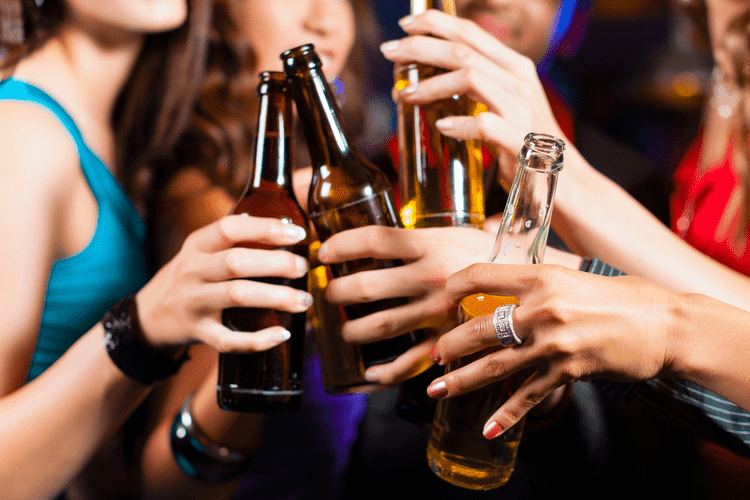How to Stay Sober Without AA: 8 Effective Tips
23/10/2024 22:00
Some individuals may feel uncomfortable with the religious or spiritual aspects of AA, while others may prefer a more secular approach. There are many alternatives to AA that can help individuals overcome addiction and maintain long-term Sobriety. Staying sober is a challenging and complex journey that requires a lot of effort, commitment, and support.

Are you fired up to learn more expert tricks to boost your health? Scroll through our blog so you can access the latest advice. Celebrating your progress will also serve as a reminder of the strength and determination you possess to maintain sobriety. Seeking knowledge on alcoholism can also help dispel any misconceptions about the disease. It’ll foster empathy and understanding toward those struggling with addiction. You should also consider joining support groups outside of AA.
Getting Support
- Members, the sponsor and his or her apprentice(s).
- Outpatient treatment programs are still available outside of these options that an individual better resonate with.
- Today, we’re sharing 10 tips to help you break free of this condition and reclaim the life you deserve.
I hear it all the time in the rooms of A.A., “Get a sponsor”, “Call your sponsor everyday”, and “Don’t make any decisions until you talk to your sponsor”. These are all valid reasons to explore other recovery models—and there are plenty to choose from. Your journey towards self-improvement begins with a single step, and we’re here to walk alongside you every step of the way. Refuge Recovery is a Buddhist-inspired program that emphasizes mindfulness, compassion, and community.
Explore Living Sober
Additionally, practicing meditation or mindfulness can help individuals manage stress and reduce the likelihood of relapse. It’s important to find a treatment program that works for you and to have a strong support system to help you through the https://ecosoberhouse.com/ recovery process. Additionally, some people may find AA’s group dynamics or principles too rigid or dogmatic. Whatever the reason, it is important to know that there are many other options available that can provide the necessary support and guidance to achieve and maintain Sobriety.
Staying Sober Long-Term: 8 Research-Proven Strategies for 2025
- There are endless options to try for support and guidance if you’d struggling with alcohol.
- There are many myths about this behavior, including ones that downplay its effects.
- This worksheet can be used to develop a collaborative treatment plan.
Counseling can help individuals identify and manage triggers that may lead to substance use. Additionally, counseling can help individuals develop healthy coping mechanisms and improve their overall mental health. It is important to note that staying sober without AA does not mean you are alone in your recovery journey. There are many resources available to help you stay on track and prevent relapse. These may include online support groups, recovery apps, and peer support programs such as SMART Recovery and Refuge Recovery. This does not necessarily reflect each person’s journey.
Early recovery is difficult, and these difficulties may stifle your happiness. As you remain sober for longer, though, living the sober life gets better and better. In some ways, staying away from drugs is easier than staying away from alcohol. Alcohol is available on most streets in most places in the world and is legal. Drugs, on the other hand, usually involve having a drug dealer’s number, calling them up and then going to buy them illicitly.
“Feel Free”: A Closer Look at the Wellness Shot That Isn’t So Innocent
Contact our Northern California Rehab today to learn more and get started. While programs like AA can help people recover from alcohol use disorder, they aren’t always the best fit for everyone. Now that you know how to stay sober without AA, you can put them into practice and start reclaiming your life.

Being ready to distance oneself from non-accommodating social circles may be necessary when finding a healthy, sober community. Talking with established friends and loved ones about setting new sober expectations can Halfway house be a great way to use those who already support an individual to explore new possibilities in sobriety. Even after graduating from a dedicated inpatient treatment program, an individual is still tasked with maintaining sober change. Exploring personal needs, tending to social needs, and developing a relapse prevention strategy are all just part of a sustainable approach to sobriety. It involves strategies to address the effects of addiction, effective relapse prevention strategies, and exploring sober communities. It can be easy to get bogged down in stresses and hectic daily routines, especially while navigating urges, cravings, and triggers.
Firstly, it is important to understand why these environments can be damaging. Learning effective strategies to manage cravings how to stay sober without aa and peer pressure will also play a significant role. Then you’ll remain steadfast in your commitment to sobriety. While you don’t have to plan every single minute of your life, it does help to create a routine that’s productive and enjoyable.

If you moderate your drinking, getting outside will feel even better. You know what we mean if you’ve ever been on a hike hungover. Host one at home with your favorite mocktails or non-alcoholic wines if you don’t want to tempt yourself at the bar. Board games are having a bit of a renaissance right now. That means there are tons of great options — and we don’t mean new versions of Monopoly. Invite a few family members or new friends and break out the board games.
Avoid Triggers
If you live in a big city, take a day trip to the closest forest preserve or explore urban hikes in your area. These places usually have their rooms ranked by difficulty, so be kind to yourself and your nerves if this is your first time. Start watching the calendars for local venues so you know when your favorite artists are in town or book tickets to see a new band.










